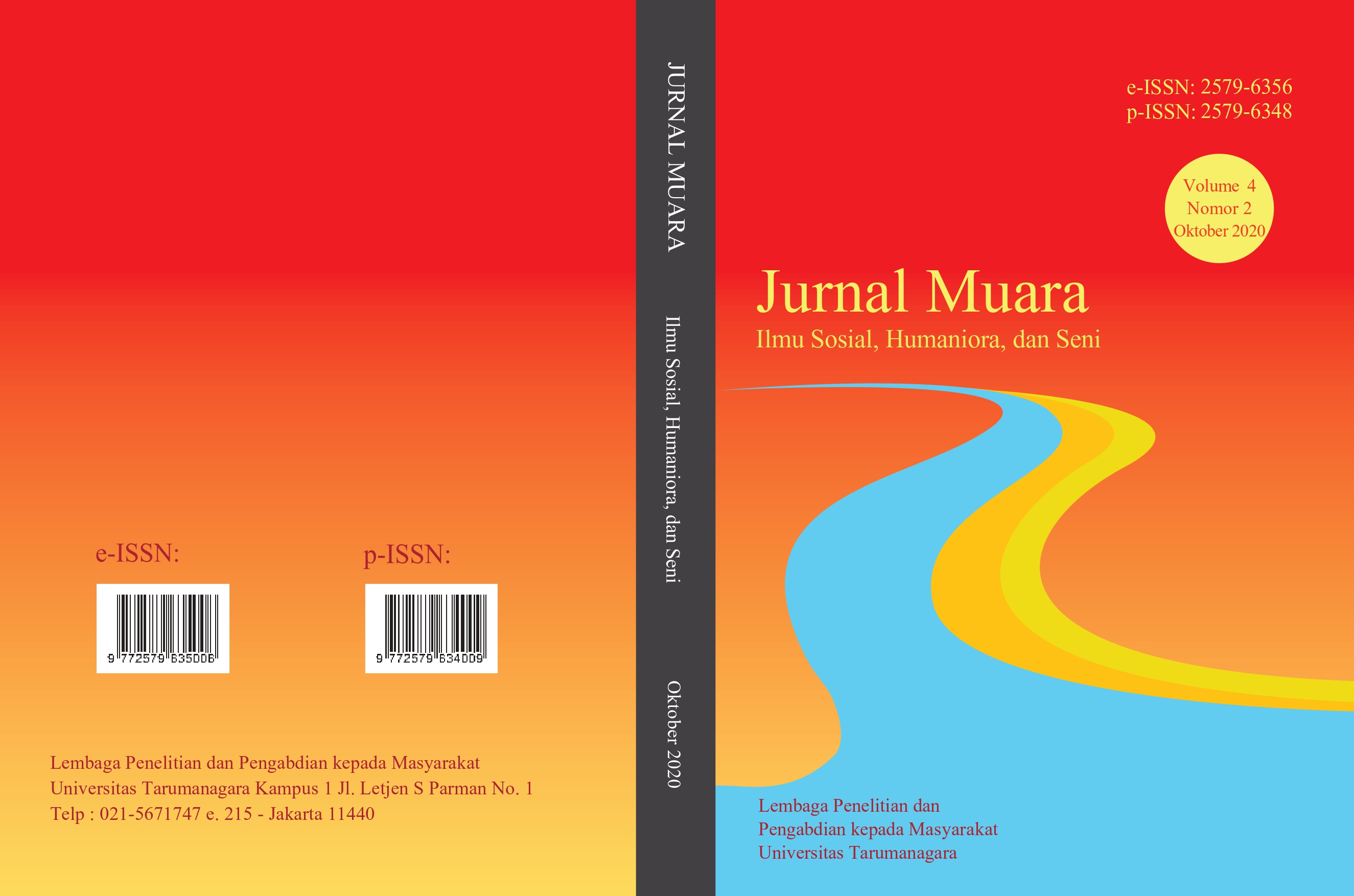PERAN PERSEPSI DUKUNGAN ORGANISASI TERHADAP KESIAPAN MENGHADAPI PERUBAHAN DENGAN MODAL PSIKOLOGIS SEBAGAI MEDIATOR
Main Article Content
Abstract
Change is a necessity because no one can reject or avoid change. This can also happen in organizations, so it is important to be able to see a person's readiness in dealing with changes with the variables that influence it. The main objective of this study was to examine the role of psychological capital as a mediators in the relationship between perceived organizational support and readiness of change in PT X. Participants were 150 employees of PT X, a subsidiary of one of the BUMN. Data were collected using a change readiness questionnaire based on the Holt scale, Armenakis (2007), the scale of the perception of organizational support by Eisenberger, Huntington, Hutchinson, & Sowa (1986) to measure perceived organizational support. Psychological capital is measured using a concept from Luthans, Youssef-Morgan, Avolio (2015) which was later developed by the Faculty of Psychology at Tarumanagara University. Data processing using linear regression has proven the perceived of organizational support directly has a positive and significant effect on readiness of changes in PT X. The contribution of the variable perception of organizational support in explaining the variable readiness of change is 30.2%. Perceived organizational support have a positive and significant effect on readiness to face change through psychological capital mediators at PT X. The contribution of readiness of change and psychological capital in explaining the variables of readiness to face change is 46.6%.
Perubahan adalah keniscayaan karena tidak ada seorang pun yang dapat menolak atau menghindar dari perubahan. Hal ini pun dapat terjadi di organisasi, sehingga penting untuk dapat melihat kesiapan seseorang dalam menghadapi perubahan dengan mempertimbangkan variabel-variabel yang mempengaruhinya. Tujuan utama dari penelitian ini adalah untuk menguji peran mediator modal psikologis terhadap hubungan persepsi dukungan organisasi dengan kesiapan menghadapi perubahan di PT X. Partisipan adalah 150 karyawan PT X, anak usaha salah satu BUMN. Data dikumpulkan menggunakan kuesioner kesiapan berubah berdasarkan skala Holt, Armenakis (2007), skala studi persepsi dukungan organisasi oleh Eisenberger, Huntington, Hutchinson, & Sowa (1986) untuk mengukur persepsi dukungan organisasi. Variabel modal psikologis diukur dengan menggunakan konsep dari Luthans, Youssef-Morgan, Avolio (2015) yang kemudian dikembangkan oleh Fakultas Psikologi Universitas Tarumanagara. Pengolahan data menggunakan regresi linear telah membuktikan persepsi dukungan organisasi secara langsung berpengaruh positif dan signifikan terhadap kesiapan menghadapi perubahan di PT X. Kontribusi dari variabel persepsi dukungan organisasi dalam menjelaskan variabel kesiapan menghadapi perubahan sebesar 30.2%. Persepsi dukungan organisasi berpengaruh positif dan signifikan terhadap kesiapan menghadapi perubahan melalui mediator modal psikologis di PT X. Kontribusi dari variabel persepsi dukungan organisasi dan modal psikologis dalam menjelaskan variabel kesiapan menghadapi perubahan sebesar 46.6%.
Article Details
References
Armenakis, A.A.. Harris. S.G.. & Mossholder. K.W. (1993). Creating readiness for organizational change. Human Relations. 46 (6). 681.
Boudreau, J.W. & Ramstad. P.M. (2007). Beyond HR: The New Science Of Human Capital. Boston: Harvard Business School Press.
Eisenberger, R.. Huntington. R.. Hutchison. S.. & Sowa. D. (1986). Perceived organizational support. Journal of Applied Psychology. 71(3). 500-507
Eisenberger, R.. Fasolo, P.. Davis-LaMastro. V.(1990). Perceived organizational support and employee diligence, commitment, and innovation. Journal of Applied Psychology. 75(1). 51-59
Eiseberger, R.. Stephen, A.. Rexwinkel, B.. Lynch. P.D. & Rhoades. L.(2001). Reciprocation of perceived organizational support. Journal of Applied Psychology. 86(1). 42-51
Gigliotti, R.. Vardaman. J.. Marshall, D. R.. & Gonzalez. K. (2018). The role of perceived organizational support in individual change readiness. Journal of Change Management. 19(2). 86-100.
Ghozali, I. (2016). Aplikasi Multivariete dengan Program IBM SPSS 23. Semarang: Badan penerbit Universitas Diponegoro.
Hayes, A. F. (2018). Introduction to Mediation. Moderation. and Conditional Process Analysis. New York: The Guilford Press.
Holt, D.T.. Armenakis, A.A.. Field, H.S.. & Harris, S.G. (2007). Readiness for organizational change: The Systematic development of a scale. The Journal of applied behavioral science. 43 (2). 232-255.
Kirrane, M.. Lennon, M.. O'Connor. C.. & Fu. N. (2016). Linking perceived management support with employees’ readiness for change: The mediating role of psychological capital. Journal of Change Management. 17(1). 47-66.
Lizar, Mangundjaya. Rachmawan. 92015). The role of psychological capital and psychological empowerment on individual readiness for change. The Journal of Developing Areas. 343-352.
Luthans, F.. Youssef-morgan CM. Avolio B. (2015). Psychological Capital and Beyond. New York; Oxford Univ. Press.
Luthans, F.. Youssef. C. M.. & Avolio. B. J. (2007). Psychological Capital Developing The Human Competitive Edge. Oxford: Oxford University Press
Luthans, F.. Youssef. C. M.. & Avolio. B. J. (2007). Investing and developing positive organizational behavior, the emergence of psychological capital, In Cooper & D. Nelsons. Positive Organizational Behavior.
Mangundjaya, Wustari L.H. (2016). Psikologi dalam perubahan organisasi. Jakarta: Swasthi Adi Cita.
Rhoades, L. & Eisenberger. R. (2002). Perceived organizational support: A review of literature. Journal of Applied Psychology. 87(4). 698-714.
Riduwan & Kuncoro, E. (2014). Cara menggunakan dan memaknai path analysis (Analisis Jalur). Bandung: Alfabeta.
Siaran Pers Kementrian BUMN, (2019. October 9). Retrieved November 2. 2019, from http://bumn.go.id/berita/1-Berkat-Digitalisasi-Pertamina-Lebih-Efisien.
Sugiyono. (2017). Metode penelitian kuantitatif kualitatif dan R&D. Bandung: Alfabeta.



